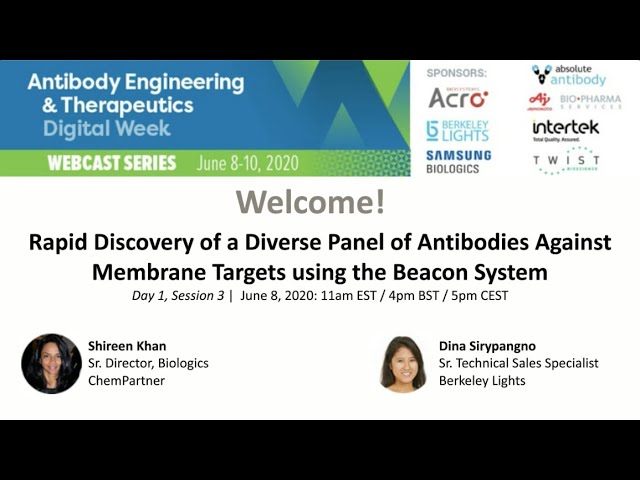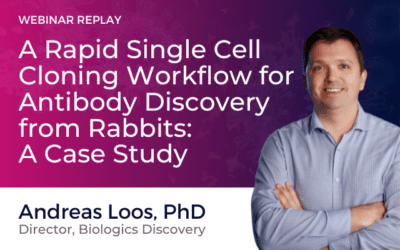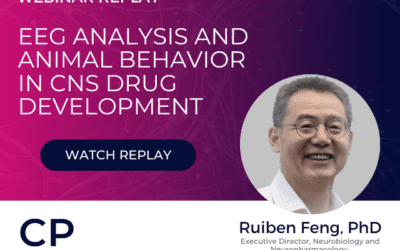Presented by Dr. Shireen Khan, Senior Director of Biologics at ChemPartner and Dina Sirypangno, Senior Technical Sales Specialist at Berkeley Lights
Abstract:
Traditional antibody discovery technologies have been used to develop all FDA-approved antibody therapeutics currently in the clinic for diseases including autoimmune, inflammatory, infectious diseases, and cancer. However, the next-generation of antibody therapies against more challenging targets, such as membrane-bound receptors, will require new technologies that can screen the broad B cell repertoire in depth.
Dr. Shireen Khan presents a case study of how ChemPartner has leveraged the Beacon system to rapidly discover cross-reactive antibodies against the GPI-anchored urokinase plasminogen activator (uPA) receptor. uPA and its receptor uPAR are associated with aggressive forms of cancer including metastatic breast cancer and pancreatic ductal adenocarcinomas. The upregulation of uPA in cancer was shown to correlate with poor clinical prognosis and supports targeting this pathway as a therapeutic approach for tumors in which uPA/uPAR are tumorigenic drivers. Identification of crossreactive antibodies to human, cyno, and mouse uPAR proved to be challenging by panning a Fab phage display library against human uPAR.
In collaboration with UCSF and SPII, ChemPartner leveraged the Berkeley Lights’ Beacon optofluidic system to screen deeper into the immune B cell repertoire. Single B cells were screened on the Beacon system using a novel multiplexed assay for human, mouse, and cyno uPAR binders. Antibodies were identified that bound both human and cyno uPAR proteins and represented broad sequence diversity. After generating the antibodies through recombinant antibody expression and purification, several candidates were strong binders to human uPAR on endogenously expressing MDA-MB-231 breast cancer cells. Functional characterization of these antibodies in uPA/uPAR blocking, pERK signaling, and invasion assays is underway. Dina Sirypangno shares new capabilities developed at Berkeley Lights to enable better antibody lead candidate selection in under 1 week.





